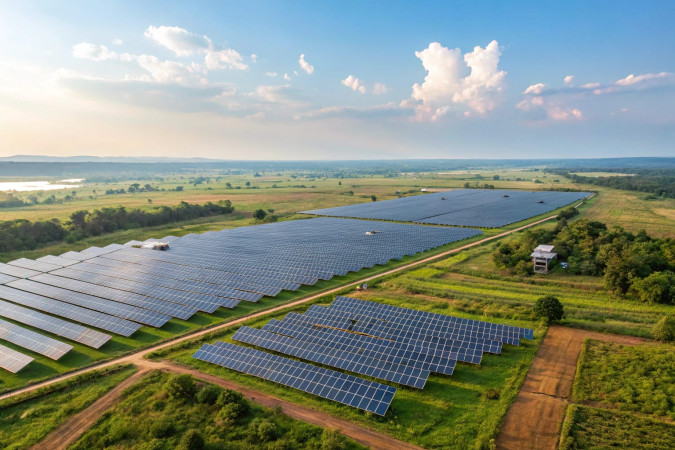
Follow India Renewable Energy News on WhatsApp for exclusive updates on clean energy news and insights
Odisha Government Issues Guidelines for Floating Solar Projects under Renewable Energy Policy 2022
Feb 11, 2025
The Odisha government has announced operational guidelines for the implementation of floating solar photovoltaic (PV) projects under the Odisha Renewable Energy Policy, 2022 (OREP 2022). This initiative aims to promote clean energy alternatives, decarbonize the energy sector, and attract investments in innovative renewable energy solutions like floating solar PV systems.
With approximately 300 sunny days annually, Odisha has significant potential for solar energy generation. The state aims to harness its extensive water bodies and reservoirs to develop large-scale floating solar projects.
In the first phase, the government has prepared a pre-feasibility report (PFR) identifying over 5,000 MW of floating solar potential. The nodal agency will coordinate with the Department of Water Resources to identify suitable sites for these projects.
The Department of Water Resources will permit the use of water bodies under its administrative control for floating solar projects, charging a nominal annual lease rent or upfront payment. Additionally, industries will be allowed to establish floating solar plants to meet their captive energy needs.
Advantages of Floating Solar Projects
- Higher Capacity Utilization Factor (CUF): Improved efficiency compared to ground-mounted solar.
- Space Efficiency: Utilizes underutilized water surfaces, reducing the need for land acquisition.
- Water Conservation: Reduces evaporation from water bodies.
- Reduced Algae Growth: Limits algae formation, improving water quality.
- Lower Operation & Maintenance Costs: Simplifies upkeep due to its design.
- Minimal Impact on Aquatic Life: Environmentally friendly and non-invasive.
- Enhanced Security and Durability: Resistant to weather conditions with robust designs.
Through OREP 2022, the Odisha government is committed to achieving its clean energy targets and reducing dependency on fossil fuels. This policy and its guidelines pave the way for innovative renewable energy projects and underline the state’s commitment to sustainability.